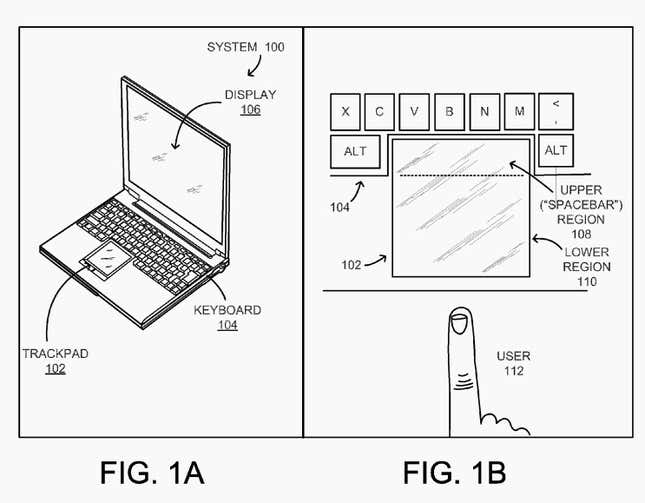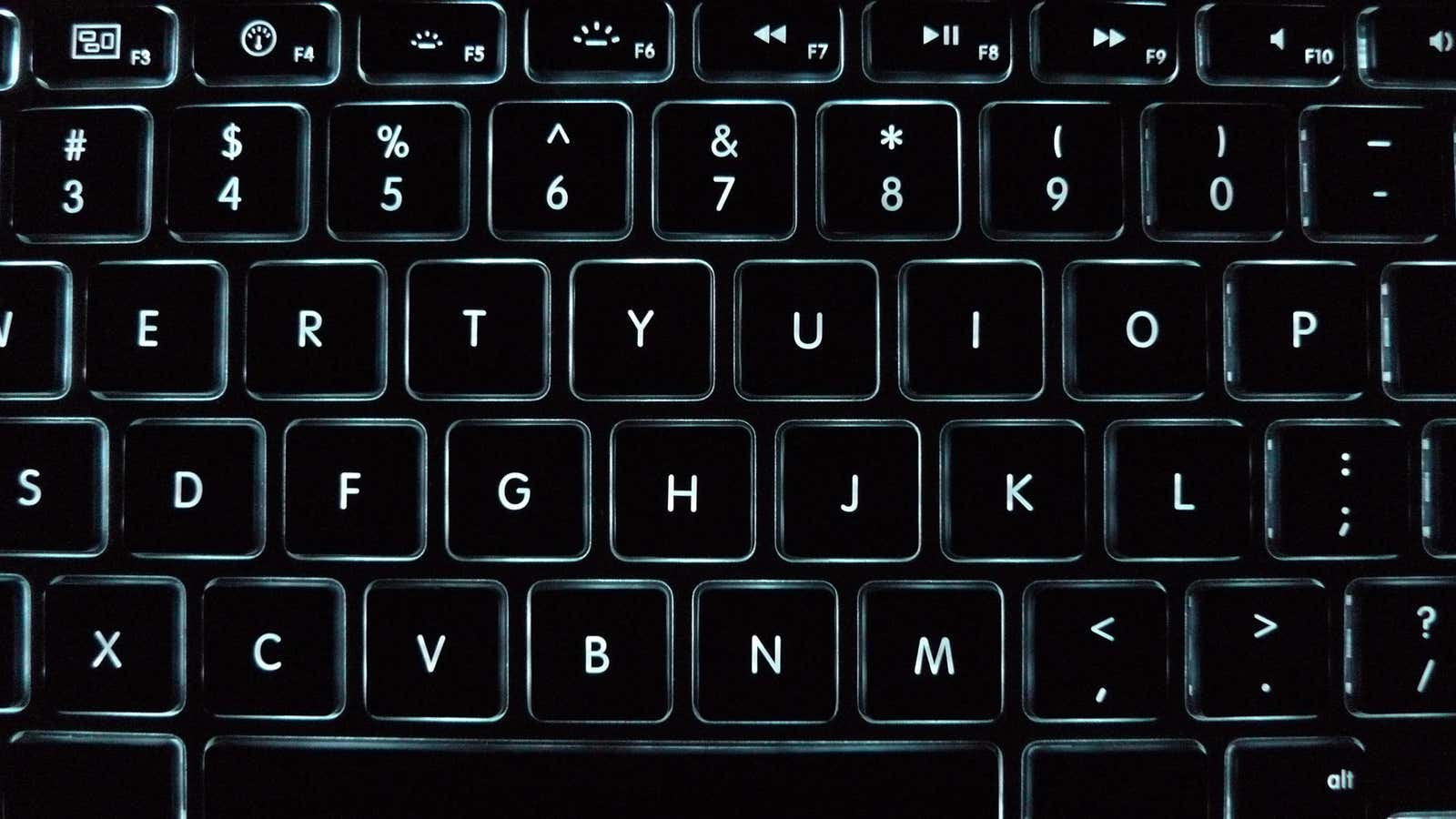Every computer manufacturer is looking for ways to make its laptops smaller and more portable. Apple recently announced a new MacBook that saves space by moving the keys on the keyboard together, and Dell got rid of the bezel on its newest XPS laptop. But a new patent awarded to Google today could lead the way for the most space-saving laptop yet, literally.
In the patent, the company outlined a design for a laptop that replaces the space bar with an extended trackpad. The patent suggests that part of the trackpad—separated by a line or a ridge—would serve as a space bar, and the rest would just be a regular trackpad. A set of sensors that sit under the trackpad would determine whether the user wants a space bar or a mouse: A single tap when the user has been typing will create a space, but a tap while the using the trackpad as a mouse will result in a mouse click.

According to the patent, Google’s logic for a virtual keyboard would be to create a smaller laptop computer, by pushing the trackpad up into the area that the space bar would havve occupied. Lenovo’s current laptops already try to save a little space by pushing the trackpad a little closer to the keyboard, but it begs the question of why Google thinks it would be worth having just one virtual key. Presumably any number of keys could be turned into virtual keys, saving even more space on a laptop, though at that point, you could just use a tablet.
A representative for Google told Quartz that some patents it holds turn into products, and some don’t, and that ”prospective product announcements should not necessarily be inferred from our patents.” While there’s no guarantee that Google will turn this patent into something it includes in its Chromebook line of laptops, there would be—ahem—space for it.
According to the Patent Office’s digital paper trail system, Google’s space bar patent was actually rejected twice over the last four years before being approved. Perhaps the patent drafters had just been spacing on some of the details.
The image above was taken by Remko van Dokkum and shared under a Creative Commons license on Flickr.
